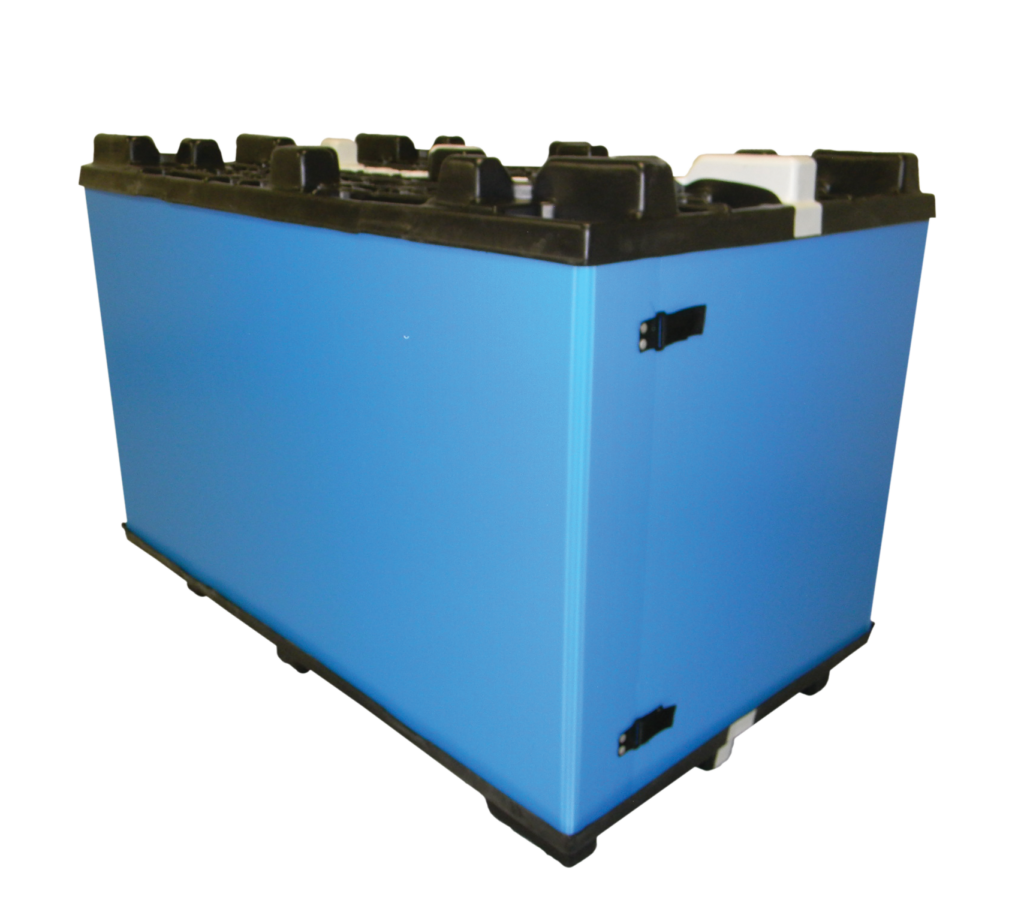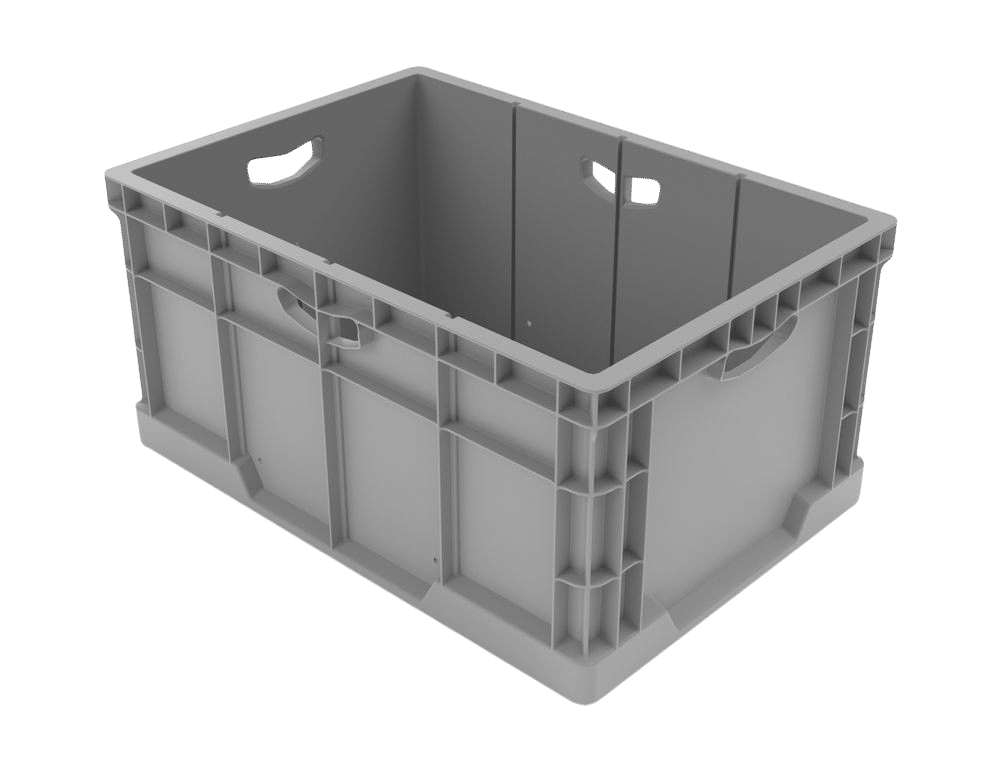In today’s industrial landscape, choosing the right packaging solution can be a strategic advantage. Effective packaging not only protects products but also streamlines transportation, playing a fundamental role in enhancing supply chain efficiency. Industries such as automotive production, electronics, construction, and medical manufacturers depend heavily on advanced packaging methods to maintain product integrity and uphold efficient operations.
Depending on your needs, you may explore both large-scale (bulk) and smaller-scale (non-bulk) packaging approaches. Bulk packaging excels in high-volume transportation or storage, offering sturdy protection in just a few containers. Non-bulk packaging, on the other hand, is well-suited for smaller runs or more delicate goods. Understanding the strengths of each is critical to optimizing your supply chain and managing costs effectively.
What Is Bulk Packaging?
Bulk packaging entails large-capacity solutions intended to hold and transport significant quantities of products in a single container. Often crafted from resilient materials like corrugated plastic containers, steel racks, bulk containers or standard hand totes, bulk packaging brings specific benefits:
- Materials and Durability: Corrugated plastic offers lightweight strength, steel provides extra sturdiness for heavy items, bulk containers and standard hand totes offer superior stacking and storage capabilities.
- Industry Applications: Automotive operations utilize bulk containers for large parts, construction firms secure building materials, and medical equipment manufacturers protect devices in transit.
- Cost-Effectiveness: High-capacity containers can reduce transportation and storage costs by consolidating shipments. When used over multiple cycles, bulk solutions can also support sustainability goals.
Bulk packaging is particularly valuable for organizations handling large-scale operations that prioritize efficiency, space management, and long-term cost savings.
Understanding Non-Bulk Packaging
In contrast, non-bulk packaging focuses on precise handling for smaller or more delicate items. It often involves specialized containers engineered for tailored protection, including options featuring foam assemblies, trays, and kitting totes.
Key benefits include:
- Customization: Designed around the size, shape, and fragility of products to minimize potential damage. This is especially critical for industries such as electronics and pharmaceuticals.
- Flexibility: Suitable for businesses with frequent product modifications or smaller production runs, allowing easy updates without reorganizing large-scale systems.
- Enhanced Protection: Adds extra padding and stability, reducing breakage rates and ensuring goods reach their destination in peak condition.
For industries where precision and adaptability are key, non-bulk packaging provides an essential layer of security and quality control.
Key Differences Between Bulk and Non-Bulk Packaging Solutions
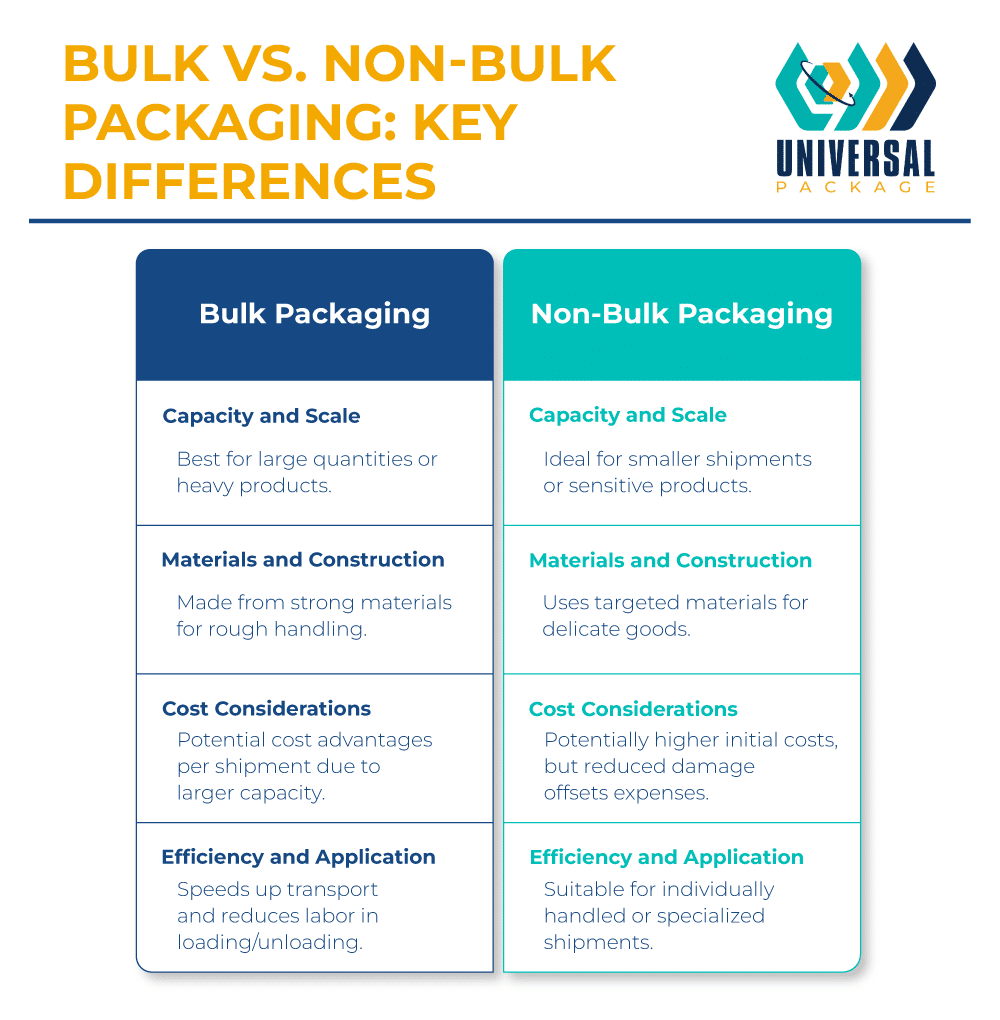
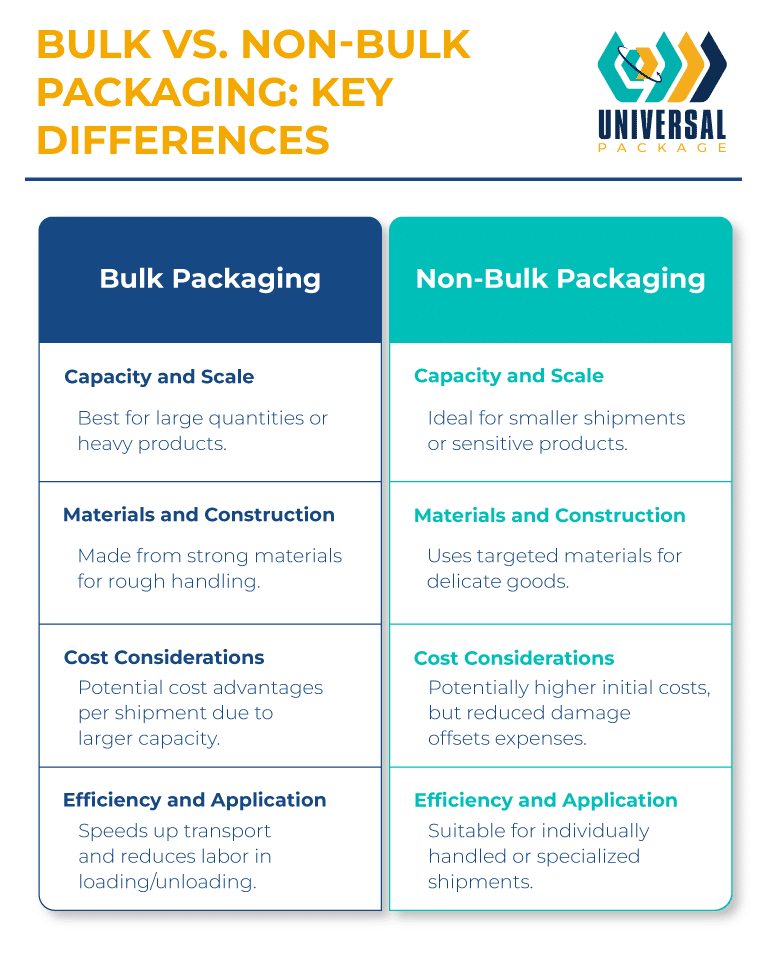
Capacity and Scale
- Bulk Packaging: Best for large quantities or heavy products, capable of shipping high volumes efficiently.
- Non-Bulk Packaging: Ideal for smaller shipments or sensitive products, offering increased customization and careful handling.
Materials and Construction
- Bulk Packaging: Typically made from strong materials engineered for rough handling and stacking.
- Non-Bulk Packaging: Uses targeted materials (e.g., foam inserts) to safeguard delicate goods.
Cost Considerations
- Bulk Packaging: Offers potential cost advantages per shipment due to larger capacity, particularly when containers are reused effectively.
- Non-Bulk Packaging: While customization can raise initial expenses, reduced damage and improved product integrity may offset these costs over time.
Efficiency and Application
- Bulk Packaging: Speeds up the transport of large or heavy products, often reducing labor in loading and unloading.
- Non-Bulk Packaging: Suitable for individually handled valuables or smaller batch shipments across sectors like electronics and trade shows.
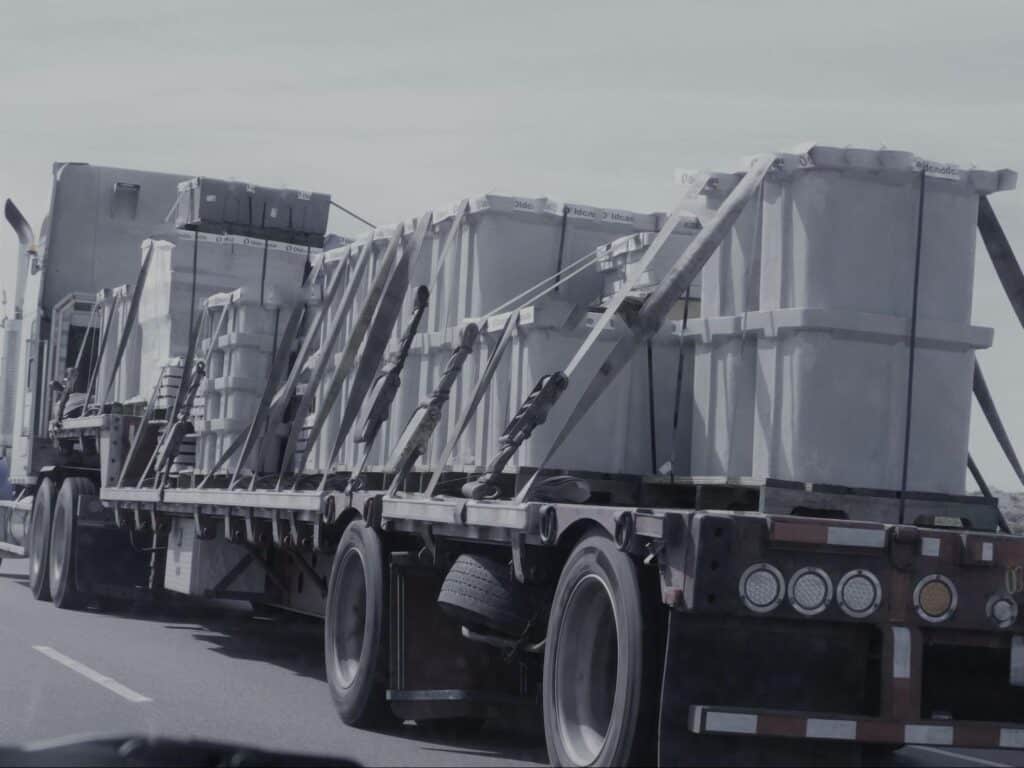
Benefits of Custom Solutions in Industrial Packaging
Customizing your packaging approach can deliver critical advantages, from streamlined workflows to long-term cost savings:
Addressing Industry-Specific Requirements
Some sectors, including medical and military, impose rigorous safety and cleanliness standards. Tailored designs ensure compliance with regulatory requirements, offering both product protection and organizational peace of mind.
Enhancing Workflow and Handling Efficiency
Custom bulk containers can align with automated systems, expediting loading and unloading. This integration promotes labor efficiency and consistency in product handling.
Material Optimization
With customization, companies can select the most suitable materials—such as foam for cushioning, corrugated plastic for weight reduction, or steel for maximum durability—aiding both protection and cost efficiency.
Long-Term Savings Through Reusability
Opting for reusable custom packaging can generate notable savings across multiple shipping cycles, slashing disposal and replacement costs while minimizing environmental impact.
Supporting Operational Flexibility
Custom packaging solutions adapt seamlessly to new products or changing requirements. This ensures ongoing efficiency even as product lines and market demands evolve.
Deciding Between Bulk and Non-Bulk Packaging for Your Needs
When gauging which packaging route to choose, consider both short-term and long-term impacts on cost, efficiency, and product safety.
- Assess Product Characteristics – Bulky or particularly heavy items that do not require added protection, favor bulk containers, whereas smaller, fragile goods benefit from precise security measures.
- Consider Shipping Volume and Frequency – Bulk packaging is great for large-scale or repetitive shipments. Non-bulk excels with variable output or specialized cargo.
- Factor in Industry Standards and Compliance – Strict regulations might necessitate additional reinforcement (bulk) or specialized protection (non-bulk).
- Evaluate Reusability Options – Effective reuse policies can yield major cost and sustainability advantages, be it with large containers or smaller packages.
- Determine the Level of Product Protection – Items that are fragile or intricate may call for tailored cushioning. More robust products thrive in durable bulk containers.
- Align with Operational Goals and Logistics – Bulk packaging streamlines handling and storage, while non-bulk lends flexibility to operations with frequent product changes.
- Balance Budget and Value – Factor in potential savings from damage reduction, reusability, or decreased labor time when weighing up initial costs.
Finding the Right Fit for Your Business
Selecting a solution that matches both product demands and logistics capabilities is essential. Partnering with a provider offering a full range of services ensures you receive packaging strategies tailored to your specific requirements, resulting in optimized efficiency and reliability.
Optimize Your Packaging Strategy for Enhanced Safety and Cost Efficiency
Choosing the correct packaging approach can profoundly impact product safety, operational agility, and cost management. Bulk options simplify large-scale shipping, support reusability, and reduce per-unit transit expenses. Non-bulk solutions, conversely, ensure smaller or delicate items receive customized care and protection.
To make the smartest decision, evaluate the unique characteristics of your goods, your shipping volume, and your compliance obligations. When done well, packaging optimization reduces waste, cuts costs, and boosts productivity across the supply chain.
Ready to explore your options further? Strengthen your transportation and storage processes by leveraging bulk packaging solutions or discovering our non-bulk packaging options tailored to your business. Experience the advantages of smart, efficient, and scalable packaging today!

